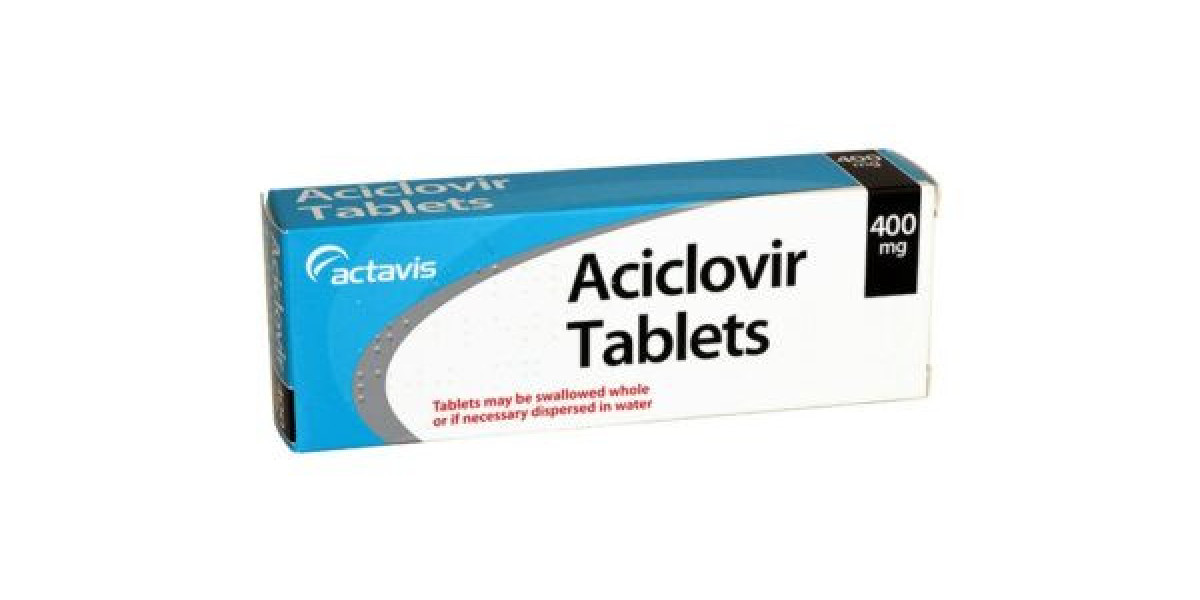When it comes to treating viral infections, especially those caused by herpes viruses, Aciclovir 400mg Tablets are often prescribed due to their proven effectiveness. These tablets help control outbreaks, reduce symptoms, and support faster recovery. However, before starting any medication, it’s important to understand the safety measures involved.
Knowing the precautions and drug interactions related to Aciclovir can help ensure better treatment outcomes and avoid potential health risks. Whether you're just starting this antiviral or have been on it before, this guide provides the clarity you need.
Why Precautions Matter with Antiviral Medications
Antiviral medications like Aciclovir 400mg Tablets work by disrupting the replication process of viruses in the body. While the drug is generally safe and well-tolerated, every individual’s health profile is different. Factors like age, kidney function, allergies, and existing medications can influence how your body reacts to treatment.
Taking the right precautions helps you stay safe, avoid side effects, and get the most benefit from your prescription.
Key Precautions to Take Before Using Aciclovir 400mg Tablets
Before starting treatment, your healthcare provider will likely evaluate several important factors. Here are the main things you should be aware of:
1. Inform Your Doctor About Existing Health Conditions
If you have kidney problems, neurological disorders, or a weakened immune system, let your doctor know before starting Aciclovir 400mg Tablets. The dosage may need adjusting to prevent potential complications, especially in people with reduced kidney function.
2. Discuss Any Allergies
Some individuals may be allergic to aciclovir or similar drugs like valaciclovir. Signs of an allergic reaction include rashes, swelling, dizziness, or trouble breathing. If you’ve experienced such reactions before, your doctor may recommend an alternative.
3. Pregnancy and Breastfeeding Considerations
While Aciclovir 400mg Tablets are generally considered safe during pregnancy, they should only be taken if clearly needed. The benefits and risks should be carefully weighed. If you are breastfeeding, aciclovir may pass into breast milk in small amounts. Always consult your doctor before use.
4. Stay Hydrated
This medication can affect your kidneys, especially if taken in high doses or combined with other kidney-impacting drugs. Drinking plenty of water helps flush the drug through your system and minimizes stress on your kidneys.
Important Drug Interactions to Be Aware Of
Drug interactions can change how Aciclovir 400mg Tablets work or increase the risk of side effects. Being informed about these interactions can help avoid unnecessary complications.
1. Other Antivirals or Immune-Modifying Drugs
Using aciclovir alongside other antiviral medications or immune system drugs might increase the effect or risk of side effects. Always check with your healthcare provider if you’re on medications like interferons or other antivirals.
2. Drugs That Affect Kidney Function
Taking aciclovir with medications that already impact the kidneys, such as nonsteroidal anti-inflammatory drugs (NSAIDs), aminoglycosides, or cyclosporine, can increase your risk of kidney damage. Let your doctor know if you take any of these.
3. Probenecid and Cimetidine
These two medications may increase aciclovir levels in the blood, which can lead to a higher risk of side effects. If you're taking either of these, your doctor may adjust the dose of Aciclovir 400mg Tablets accordingly.
4. Vaccines
Live viral vaccines like varicella (chickenpox) or zoster (shingles) vaccines may be less effective when taken with antiviral medications. You may need to delay vaccination or pause antiviral therapy under medical supervision.
How to Safely Take Aciclovir 400mg Tablets
Stick to the Prescribed Dose
Only take the amount recommended by your healthcare provider. Too little may not treat the infection effectively. Too much could cause harm, particularly to your kidneys or nervous system.
Don’t Skip or Double Dose
If you forget a dose, take it as soon as you remember. If it’s almost time for the next one, skip the missed dose—don’t double up. Consistency is key for antiviral treatments to work effectively.
Regular Monitoring May Be Needed
If you're on a long-term course of Aciclovir 400mg Tablets, your doctor may schedule routine blood or kidney function tests. These ensure the drug isn’t causing hidden problems and that it’s still the best option for your condition.
Tips for Managing Side Effects
Even though side effects are rare or mild in most people, it’s wise to know how to handle them if they appear.
Mild Side Effects
Some users experience nausea, headaches, or dizziness. These usually pass on their own. Staying hydrated and taking the tablet with food can help ease these symptoms.
Serious Symptoms to Watch For
If you notice confusion, hallucinations, severe fatigue, yellowing of the skin, or dark urine, seek medical help immediately. These could signal kidney issues or an allergic reaction.
Long-Term Use: What to Know
In some cases, Aciclovir 400mg Tablets are taken as a long-term preventive measure, especially for people with frequent herpes outbreaks or chronic conditions like HIV. While long-term use is generally safe, it increases the importance of regular monitoring and hydration.
Discuss any plans for extended use with your doctor so they can adjust the treatment to suit your health needs and lifestyle.
Where to Buy Aciclovir 400mg Tablets
You should only purchase Aciclovir 400mg Tablets from trusted medical sources to ensure safety and authenticity. One such source is Medcare Health Clinic, where quality and patient care are always a priority.
Avoid buying medications from unauthorized online platforms, as counterfeit drugs can be ineffective or harmful.
Final Thoughts
Aciclovir 400mg Tablets are a highly effective way to manage viral infections like herpes, shingles, and chickenpox. While the medication offers great benefits, it’s essential to use it responsibly. Being aware of the necessary precautions and potential interactions helps protect your health and ensures the treatment works as intended.
Talk to your healthcare provider about your medical history and current medications before starting treatment. Ask questions, stay informed, and follow the prescribed plan closely. This way, you’ll experience the best results with minimal risk.
Remember, good health isn’t just about taking medicine—it’s also about taking responsibility.






